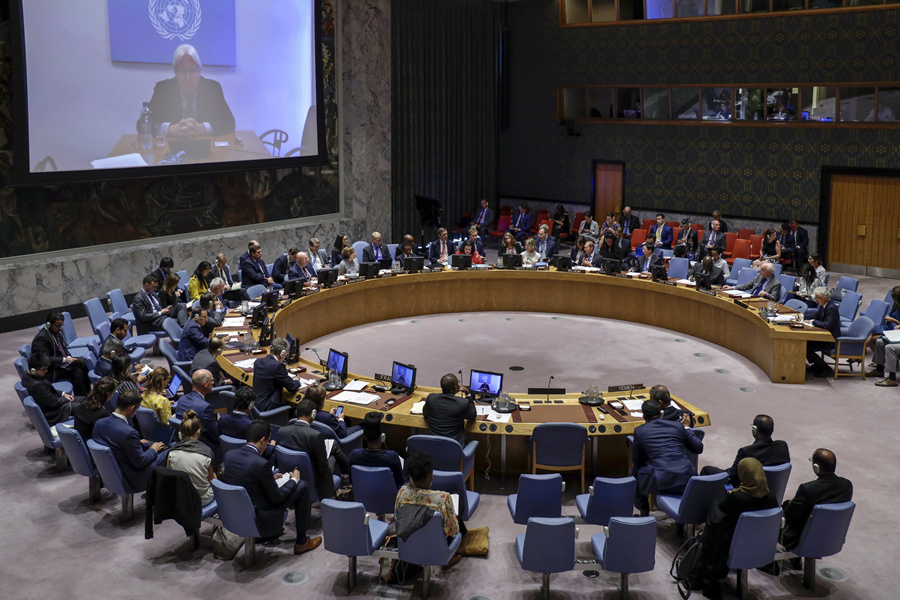
Photo taken on Sept. 16, 2019 shows the United Nations Security Council holding a meeting on the situation in Yemen, at the UN headquarters in New York. (Xinhua/Li Muzi)
Moscow considers it counterproductive to use the attacks as a pretext for "stirring up passions around Iran."
MOSCOW, Sept. 16 (Xinhua) -- The Russian Foreign Ministry on Monday condemned the recent drone attacks on oil production facilities in eastern Saudi Arabia while condemning rushed accusations against Iran.
"We strongly condemn attacks on non-military targets, the destruction of socio-economic infrastructure and any actions that can unbalance demand and supply for energy and provoke a new wave of instability in the global hydrocarbons market," it said in a statement.
On Saturday, bomb-laden drones hit two oil production facilities of Saudi oil giant Aramco in Abqaiq and Khurais. Yemen's Houthi rebels have claimed responsibility for the attacks.
No human casualties have been reported in the attacks. The attacks resulted in a decline of Saudi oil exports by 50 percent, according to the Russian foreign ministry.
On Saturday, U.S. State Secretary Mike Pompeo blamed Iran for the drone attacks, an allegation Iran has denied. Pompeo tweeted that the United States will work with its partners and allies to ensure that energy markets remain well supplied.
The Russian foreign ministry called on all parties not to rush to conclusions about who carried out the drone attacks.
It noted that Moscow considers it counterproductive to use the attacks as a pretext for "stirring up passions around Iran in line with the well-known U.S. policy."
The ministry said Moscow also considers that retaliatory violence options allegedly being discussed in Washington as unacceptable.
Moscow continues to believe that exchanges of attacks on civilian targets and related violations of international humanitarian law are a direct result of the ongoing acute political and military crisis in Yemen, the statement said.
It also reiterated the need to quickly end the armed confrontation and start negotiations under the auspices of the United Nations with the participation of all leading socio-political forces and religious groups in Yemen.
"In our opinion, this will benefit both the Yemenis and neighboring countries, as well as other states that have serious interests in this strategically important area of the world," the ministry said. ■



